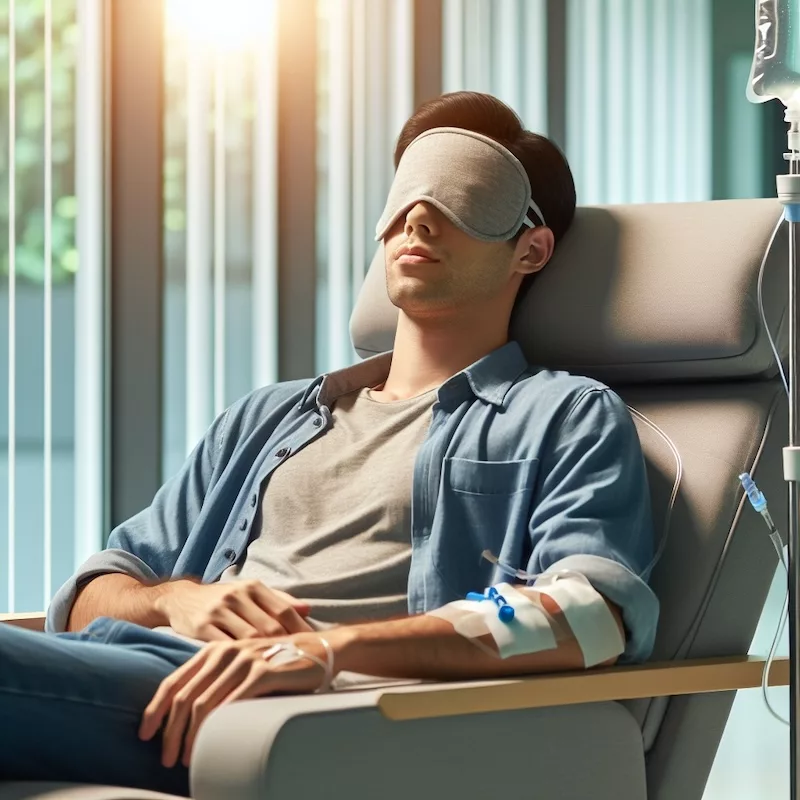Kyle Greenway developed the Montreal Model to pair ketamine with psychotherapy. In this 3-part series, he shows us how to do it.
Duration: 19 minutes, 13 seconds
Transcript:
CHRIS AIKEN: We get into the nitty gritty of ketamine assisted therapy with Kyle Greenway.
KELLIE NEWSOME: Welcome to the Carlat Psychiatry Podcast, keeping psychiatry honest since 2003.
CHRIS AIKEN: I’m Chris Aiken, the editor in chief of the Carlat Report.
KELLIE NEWSOME: And I’m Kellie Newsome, a psychiatric NP and a dedicated reader of every issue.
CHRIS AIKEN: The last 2 episodes of this podcast might have left a bad taste in your mouth about psychedelic assisted therapy. If that’s the case, we have some mouthwash. In our June-July issue we featured an interview with Kyle Greenway, who runs a ketamine assisted therapy center at McGill University. And I promise this episode will be a lot more boring than our forway into MDMA therapy, in a good way. There’s no therapeutic touch, no spirit animals, and no shadow selves in this work. Dr. Greenway takes a straight forward approach that addresses some of the common problems we encounter when our patients go to get ketamine:
1. There is no end in sight. Ketamine works quickly, but it doesn’t last, which means many patients end up on chronic maintenance ketamine therapy. The longer they take it, the less it seems to work, and the harder it is to stop. Dr. Greenway prepares patients with an end date in sight.
2. Therapy is not optional. In Dr. Greenway’s practice, ketamine is there to reduce their symptoms so they can start active therapy, which is where the lasting changes occur. He does not start ketamine until the patient is fully on board with this, which means they’ve formed a therapeutic alliance and they are starting to make behavior change. Like a dangling carrot, ketamine is started after the patient begins their behavioral change. Finally...
3. Benzos are cut. Around 50% of patients with treatment resistant depression take a benzodiazepine. We know that chronic benzo use is not therapeutic – yes, acute use might reduce depression – but chronic use is associated with possible greater depression. So what is the sense of adding another class of controlled substance on top of that?
Besides the unsightly polypharmacy, there are also empiric reasons to stop benzos before ketamine therapy. Ketamine works through glutamate and GABA agonists like benzos – and for that matter z-hypnotics – interact with glutamate in complex ways that may blunt ketamine’s effects. That is the theory, and several studies have found that ketamine is less effective for depression when benzos are on board, particularly if they are in high doses (Andrashko V et al, Front Psychiatry 2020;11:844).
So Dr. Greenway tells patients that they’ll need to taper their benzodiazepine before starting ketamine, and he’s found that ketamine is an excellent replacement for benzos, treating the withdrawal, effectively washing out withdrawal symptoms. In an open label case series he published, there was no worsening of depression, anxiety, or even sleep with this approach.
Dr. Greenway’s approach is called the Montreal Model. Unlike some psychedelic therapies, he isn’t trying to liberate consciousness, save the environment or bring about work peace. As a starting place, he just wants his patients to get out of bed. He begins with that basic behavioral approach – behavioral activation – and blends it into a more acceptance and commitment mindfulness approach in the therapy. We are going to go into an interview now where he describes all of the nitty gritty of what he does, but I will warn you, you may get more out of this interview if you read the online interview first, that's where he goes through the basics. This is where he goes into the more advanced stuff of what he actually does in the ketamine therapy sessions. Just a note that throughout this intwefiw we are talking about ketamine and the FDA approved esketamine SPRAVATO®, basically interchangeably, and that you can use these techniques with both treatments. However, there is some thinking that ketamine may be more likely to provoke a psychedelic – mind altering – kind of repose because it peaks at higher dose in the brain than esketamine.
....
KELLIE NEWSOME: Kyle Greenway is an Assistant Professor of Psychiatry at McGill University and Director of the ketamine-assisted therapy program at Jewish General Hospital in Montreal, Canada. Find his full review in our online addition for June 2024.
CHRIS AIKEN: Join us next week for part II of this podcast.
KELLIE NEWSOME: The Carlat Podcast team is now on video. Find monthly episodes of Carlat Psychiatry News on the Carlat YouTube channel or under webinars on the Carlat webpage.
The Carlat CME Institute is accredited by the ACCME to provide continuing medical education for physicians. Carlat CME Institute maintains responsibility for this program and its content. Carlat CME Institute designates this enduring material educational activity for a maximum of one quarter (.25) AMA PRA Category 1 CreditsTM. Physicians or psychologists should claim credit commensurate only with the extent of their participation in the activity.


_-The-Breakthrough-Antipsychotic-That-Could-Change-Everything.webp?t=1729528747)



